Unlocking Preschoolers' Potential: Simple Math Activities for Enhanced Learning
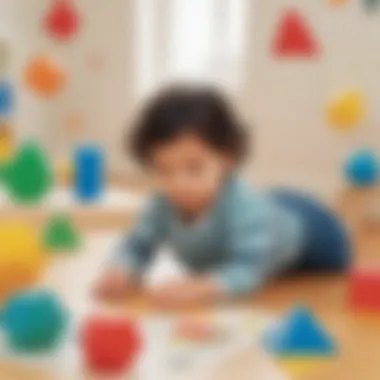
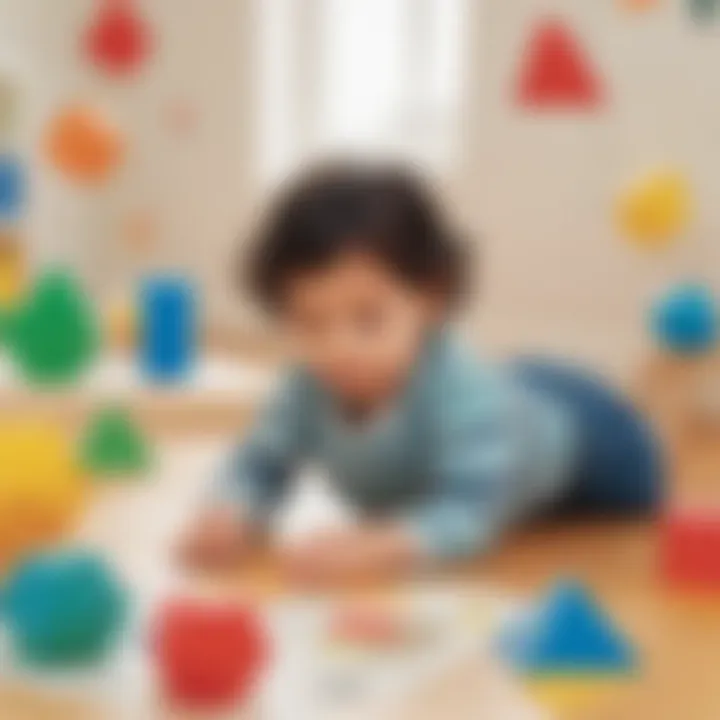
Creative Activities
Fun Quizzes
In the realm of learning, fun and quizzes blend seamlessly to create an interactive and engaging experience. Our engaging math activities extend to fun quizzes designed to captivate young learners. Covering a spectrum of topics relevant to preschoolers, these quizzes feature a variety of question types ranging from multiple-choice to fill-in-the-blank, ensuring a diverse and stimulating learning environment. Through these quizzes, knowledge reinforcement takes center stage as concepts taught through hands-on activities are revisited, solidifying understanding and retention.
Fact-Based Articles
Our exploration into enhancing preschoolers' learning does not end with hands-on activities and quizzes; it extends to fact-based articles that encapsulate a wealth of knowledge. Covering a diverse range of topics pertinent to early math education, these articles are crafted to engage young readers and facilitate easy understanding of complex concepts. Building on the foundation laid by creative activities and quizzes, these articles serve as additional resources, providing links to related materials for a holistic learning experience.
Introduction
Preschoolers are at a crucial stage of development where their young minds are like sponges, eagerly soaking up knowledge and experiences. In this article, we delve into the importance of introducing simple math activities to preschoolers to lay a robust foundation for their future learning endeavors. Understanding the significance of early math exposure in these formative years can significantly impact a child's cognitive development. Early math skills are not only about numbers and calculations but also about building a strong analytical mindset and problem-solving capabilities from a tender age.
It is essential to recognize that preschoolers are naturally curious and constantly seeking ways to explore and understand the world around them. By incorporating math into their daily activities, we can stimulate their minds, encouraging a deeper level of engagement with fundamental mathematical concepts. Early exposure to math not only cultivates numerical literacy but also nurtures critical thinking skills and enhances logical reasoning abilities in young children. Through carefully curated math activities, we aim to make learning a fun and fulfilling experience for preschoolers, setting the stage for a lifelong love of mathematics.
When introducing preschoolers to math through everyday objects, such as blocks, toys, and household items, we provide them with tangible experiences that make abstract mathematical concepts more tangible and relatable. Counting with blocks lays the groundwork for number recognition and quantity understanding, while sorting and classifying toys instill basic principles of categorization and organization. Measuring with household items introduces preschoolers to the concept of units and comparisons, fostering a hands-on approach to learning math.
Engaging games serve as powerful tools to enhance preschoolers' math skills in a playful and interactive manner. Number Bingo not only reinforces number recognition but also improves concentration and cognitive abilities. Shape matching puzzles stimulate spatial awareness and promote geometric visualization, essential for developing a strong foundation in mathematics. Counting card games encourage preschoolers to practice basic arithmetic skills in a stimulating and enjoyable setting, establishing a positive association with mathematical concepts.
Understanding the Importance of Early Math Exposure
In this section, we delve into the significance of exposing preschoolers to math at an early age. Early math exposure lays the groundwork for developing essential numeracy skills and cognitive abilities crucial for future academic success. By introducing mathematical concepts in the formative years, children can grasp fundamental principles more effectively, leading to a stronger foundation for advanced mathematical concepts in later education. The process of early math exposure involves creating a nurturing environment that sparks curiosity and fosters a positive attitude towards problem-solving and critical thinking.
Building a Strong Foundation
Building a strong mathematical foundation in preschoolers is paramount for their overall cognitive development. This foundational stage focuses on instilling basic number recognition, counting skills, and understanding simple mathematical operations. Through interactive activities like counting objects, recognizing shapes, and sorting colors, children develop a solid understanding of numerical concepts. A strong mathematical foundation not only enhances academic performance but also boosts confidence in approaching more complex math challenges in the future.
Cognitive Development Benefits
The cognitive benefits of early math exposure are profound. Engaging young children in mathematical activities enhances their cognitive functions such as memory, attention span, and problem-solving skills. By actively participating in math-related tasks, preschoolers improve their spatial awareness, logical reasoning, and decision-making abilities. These cognitive developments not only aid in mathematical proficiency but also extend to improvement in other learning areas, setting a strong cognitive framework for overall academic achievement.
Enhancing Problem-Solving Skills
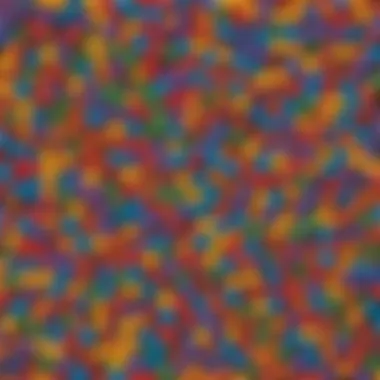
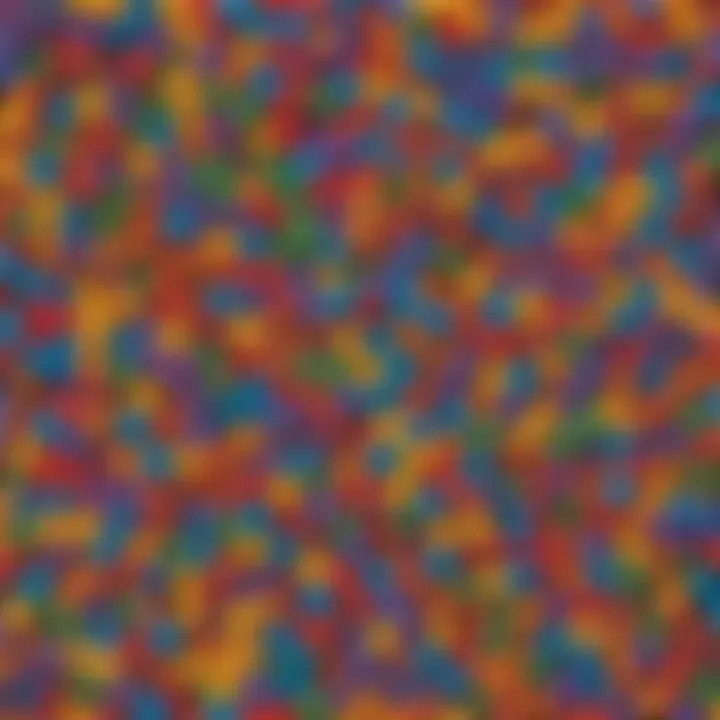
Introducing math activities to preschoolers not only nurtures their numerical understanding but also sharpens their problem-solving skills. By presenting children with mathematical challenges in a fun and engaging manner, they learn to strategize, analyze information, and make decisions independently. Problem-solving through math promotes critical thinking, creativity, and perseverance, essential skills that are transferable to various real-life situations. Fostering problem-solving abilities in early childhood sets a solid groundwork for handling complex challenges with confidence and resilience.
Incorporating Math into Daily Activities
In the quest to enhance preschoolers' learning through simple math activities, a pivotal focus lies in incorporating mathematics into their daily routines. By integrating math seamlessly into everyday activities, young children can develop a profound understanding of numerical concepts in a practical manner. Incorporating math into daily activities not only nurtures early numeracy skills but also cultivates a natural affinity towards problem-solving and critical thinking. This section delves deep into the myriad benefits and considerations surrounding the integration of math into the daily lives of preschoolers.
Math in Playtime
Math in playtime offers a dynamic opportunity for preschoolers to engage with mathematical concepts in a playful and enjoyable setting. Through interactive games, puzzles, and hands-on activities, children can grasp foundational numerical skills while having fun. Playtime acts as a fertile ground for learning where numbers, shapes, and patterns come to life through toys and games. This subheading will explore various creative ways to infuse math into playtime, fostering an enriching mathematical experience for young learners.
Meal Times
Turning meal times into a mathematical adventure can significantly boost a child's numerical acumen. From counting the number of fruits on a plate to dividing snacks into equal portions, math during meal times offers practical applications of mathematical principles. Engaging in math discussions during meals not only enhances numeracy skills but also encourages healthy eating habits. This section will delve into innovative ways to incorporate math into mealtime routines, making learning a delectable experience for preschoolers.
Math in Nature Walks
Nature walks present a treasure trove of opportunities to explore mathematical concepts amidst the beauty of the outdoors. From counting leaves and flowers to discussing patterns in the environment, math in nature walks sparks curiosity and enhances observational skills. By connecting math with nature, preschoolers can develop a holistic understanding of numerical relationships and spatial awareness. This subsection will guide readers on how to leverage nature walks to inspire mathematical exploration and discovery in young children.
Utilizing Everyday Objects for Math Exploration
Incorporating math activities using everyday objects is a crucial component of early childhood education. Through hands-on manipulation of common household items, preschoolers can develop a concrete understanding of mathematical concepts. This section focuses on the significance of utilizing everyday objects for math exploration within the context of fostering preschoolers' learning.
Importance of Utilizing Everyday Objects:
Utilizing everyday objects for math exploration provides a tangible and practical approach to learning. By using objects like blocks, toys, and household items, children can grasp abstract mathematical concepts more effectively. This hands-on experience enhances their spatial reasoning, counting skills, and problem-solving abilities. Moreover, it encourages creativity and critical thinking.
Benefits of Utilizing Everyday Objects:
One of the key benefits of using everyday objects for math exploration is the real-life connection it creates. Preschoolers can relate the mathematical concepts they learn to their immediate environment, making learning more relatable and engaging. Additionally, this approach helps in improving fine motor skills, hand-eye coordination, and concentration.
Considerations for Utilizing Everyday Objects:
When incorporating everyday objects into math activities, it's essential to select items that are safe, age-appropriate, and relevant to the child's developmental stage. Moreover, providing a variety of objects can cater to different learning styles and interests. Supervision is also necessary to ensure the child is using the objects correctly and safely.
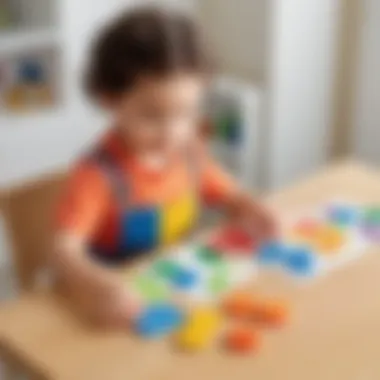
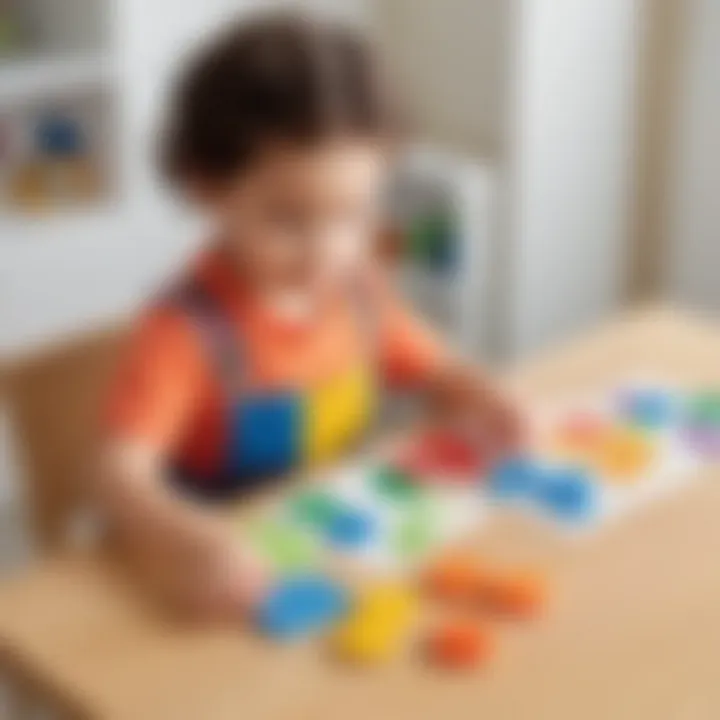
Counting with Blocks
Counting with blocks is a fundamental math activity that aids in developing numerical awareness and basic arithmetic skills in preschoolers. By manipulating blocks of various shapes, sizes, and colors, children can visually comprehend the concept of numbers and quantities.
Capacity of Indirect Learning:
Through counting with blocks, children not only improve their counting abilities but also develop spatial reasoning and visual-spatial intelligence. They learn about patterns, sequences, and organization through the physical manipulation of blocks, laying a strong foundation for future math concepts.
Hands-on Experience:
Unlike abstract mathematical exercises, counting with blocks offers a hands-on experience that engages multiple senses. Children can touch, move, and build with the blocks, promoting kinesthetic learning and memory retention. This interactive approach fosters a deeper understanding of mathematical relationships.
Sorting and Classifying Toys
Sorting and classifying toys is a valuable math activity that helps preschoolers understand categorization, attributes, and organization. By grouping toys based on various criteria such as color, size, or shape, children engage in logical thinking and pattern recognition.
Cognitive Development Benefits:
Sorting and classifying toys enhance cognitive skills by requiring children to analyze similarities and differences among objects. This process encourages critical thinking, decision-making, and problem-solving. Additionally, it contributes to the development of vocabulary as children describe their sorting criteria.
Practical Application:
Beyond theoretical understanding, sorting and classifying toys have practical applications in daily life. Preschoolers learn essential skills like organizing belongings, tidying up spaces, and grouping items efficiently. This real-life relevance bridges the gap between abstract math concepts and everyday experiences.
Measuring with Household Items
Measuring with household items introduces preschoolers to the concept of measurement in a hands-on and interactive way. By using objects like cups, spoons, or blocks to compare sizes and quantities, children develop an understanding of length, weight, and volume.
Multisensory Learning:
Measuring with household items engages multiple senses as children observe, touch, and compare different objects. This multisensory approach enhances their spatial awareness, fine motor skills, and coordination. It also encourages them to use descriptive language to communicate their measurements.
Practical Mathematical Skills:
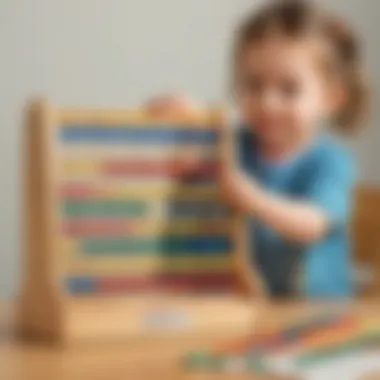
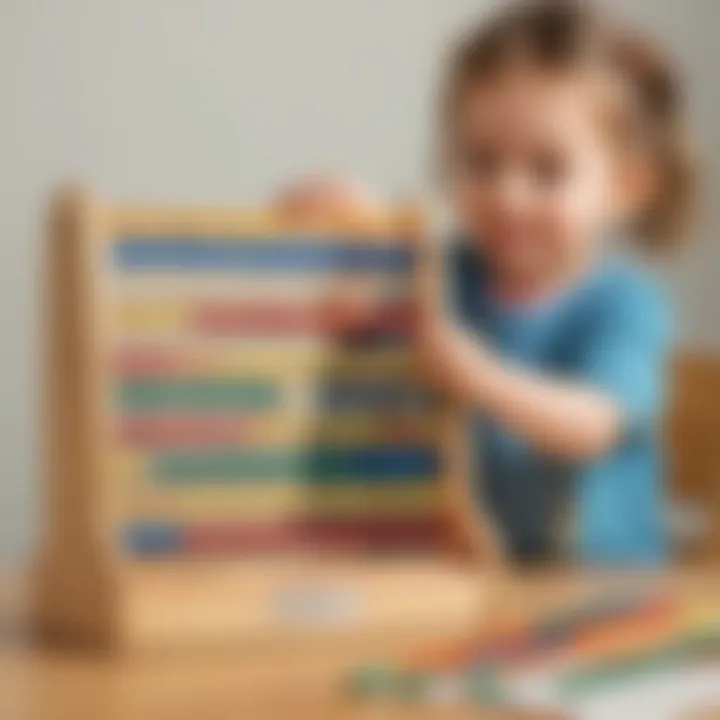
Practicing measurement with household items equips children with practical mathematical skills applicable in various contexts. They learn about units of measurement, estimation, and comparison, laying a foundation for more complex math concepts. This hands-on experience fosters curiosity and exploration in mathematical thinking.
Engaging Games to Enhance Math Skills
Engaging games play a pivotal role in enhancing math skills for preschoolers. By infusing fun and excitement into the learning process, games can significantly boost children's interest and engagement with mathematical concepts. These interactive activities not only provide a hands-on approach to learning but also promote problem-solving and critical thinking abilities in young minds. Moreover, games foster a sense of camaraderie and teamwork among children, creating a conducive environment for collaborative learning.
Number Bingo
Number Bingo is a fantastic math game that helps children develop number recognition and basic counting skills in a playful setting. The game involves calling out numbers and matching them on a bingo card, promoting numerical fluency and cognitive agility. Through Number Bingo, preschoolers can enhance their concentration, memory retention, and attention to detail. This game is highly versatile, allowing for variations that cater to different skill levels and learning objectives.
Shape Matching Puzzles
Shape Matching Puzzles are a superb way to engage preschoolers in visual and spatial reasoning while honing their shape recognition abilities. By fitting puzzle pieces together to form complete shapes, children improve their problem-solving skills and fine motor coordination. This game encourages creativity and logical thinking, giving young learners a hands-on experience with geometric concepts. Shape Matching Puzzles provide a sensory-rich learning experience that promotes cognitive development and spatial awareness.
Counting Card Games
Counting Card Games are an entertaining way to enhance preschoolers' numeracy skills and number comprehension. Through these games, children practice counting, quantity recognition, and basic arithmetic operations in a dynamic and engaging manner. Card games such as 'War' or 'Go Fish' can be adapted to include mathematical elements, stimulating critical thinking and strategic planning. Counting Card Games foster a competitive spirit in children while reinforcing mathematical principles in a captivating and interactive format.
Encouraging Mathematical Creativity Through Art
This section delves into the pivotal topic of encouraging mathematical creativity through art, a significant method detailed within this article. By intertwining mathematical concepts with artistic endeavors, children not only expand their creative horizons but also reinforce their understanding of numbers and shapes. Encouraging mathematical creativity through art stimulates both the left and right hemispheres of the brain, fostering a holistic development approach. This process not only aids in enhancing mathematical proficiency but also nurtures imaginative thinking and problem-solving skills in preschoolers. Furthermore, this section explores the manifold benefits of incorporating art into math activities, highlighting its potential to make learning both enjoyable and engaging.
Math-Inspired Painting
Math-inspired painting emerges as a delightful and educational activity for preschoolers to explore the correlation between colors, shapes, and numerical concepts. Through painting, children can visually represent numbers, geometric shapes, and patterns, bridging the gap between art and mathematics. This hands-on approach fosters creativity while concurrently reinforcing numerical recognition and spatial awareness. Moreover, math-inspired painting encourages children to experiment with different color combinations, facilitating a deeper understanding of basic arithmetic principles.
Creating Number Collages
Engaging in the creation of number collages offers preschoolers a tactile and interactive experience where they can manipulate numbers and quantities in a visually appealing manner. By arranging and gluing numbers onto artistic collages, children not only reinforce their number recognition but also enhance their fine motor skills. This activity promotes a deeper understanding of numerical relationships and sequencing, laying a solid foundation for future mathematical comprehension. Number collages foster a sense of accomplishment as children create unique artworks while simultaneously engaging with fundamental mathematical concepts.
Shape Sculpting with Playdough
Shape sculpting with playdough provides an engaging avenue for preschoolers to explore 3-dimensional shapes and spatial reasoning. By molding different geometric figures using playdough, children strengthen their understanding of shape attributes and characteristics. This hands-on activity encourages tactile learning and kinesthetic engagement, allowing children to physically manipulate shapes to form various designs. Shape sculpting with playdough not only sharpens spatial cognition but also promotes creativity and innovative thinking among young learners.
Conclusion
At its core, the essence of this compilation lies in the profound significance of early math exposure for preschoolers. The dormant potential waiting to be unlocked in young minds through these simple mathematical activities is nothing short of remarkable. As we unfurl the layers of cognitive development benefits and problem-solving enhancements, the sheer essence of fostering a strong foundation in mathematics unfurls before us.
Peering through a critical lens, one cannot overlook the pragmatic advantage of integrating math into daily activities in a seamless, unobtrusive manner. The narrative arc of utilizing everyday objects as tools for mathematical exploration presents a canvas of infinite possibilities for young learners. By engaging in these approaches, preschoolers embark on a journey brimming with cognitive stimulation and holistic growth.
The denouement encapsulates the ethos of encouraging mathematical creativity through art. This avant-garde approach transcends conventional pedagogical norms, inviting preschoolers to immerse themselves in a realm where numbers and shapes converge with artistic expression. The symphony of math-inspired painting and shape sculpting with playdough not only enriches creative acumen but also fosters a robust appreciation for the aesthetic dimensions of mathematics.







